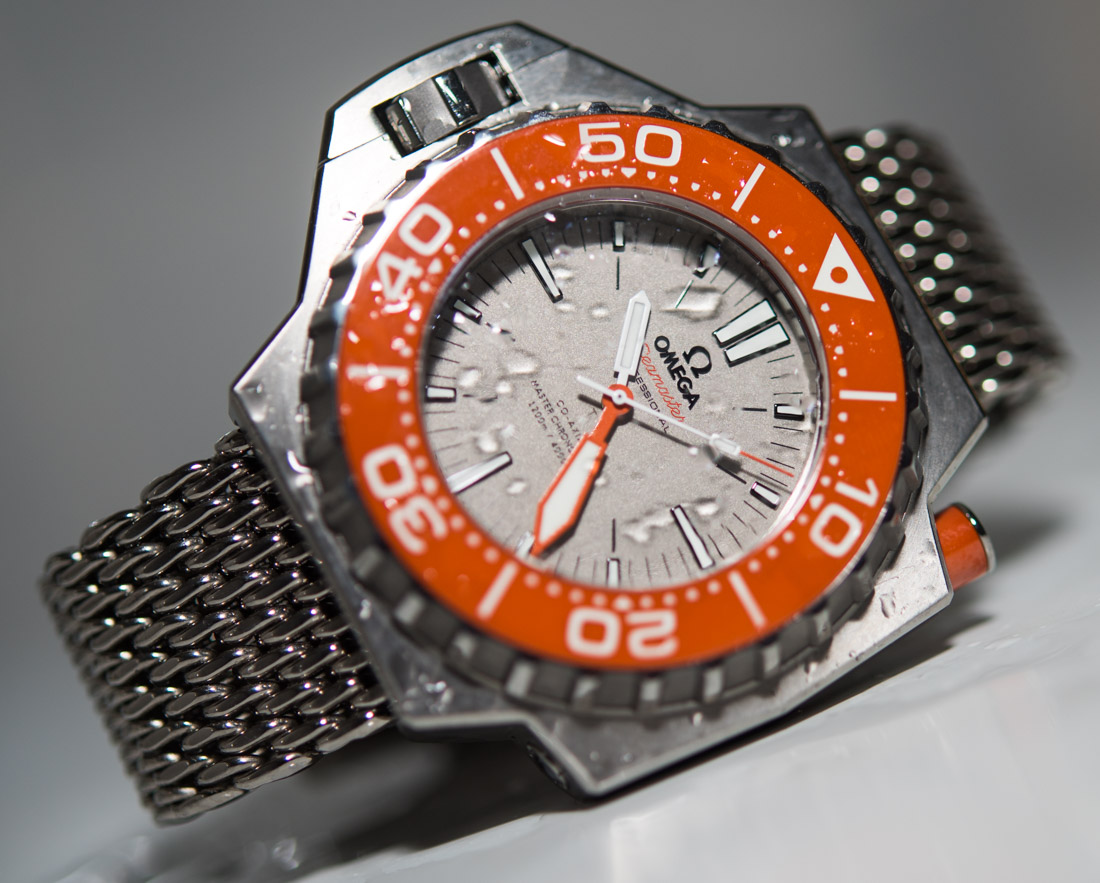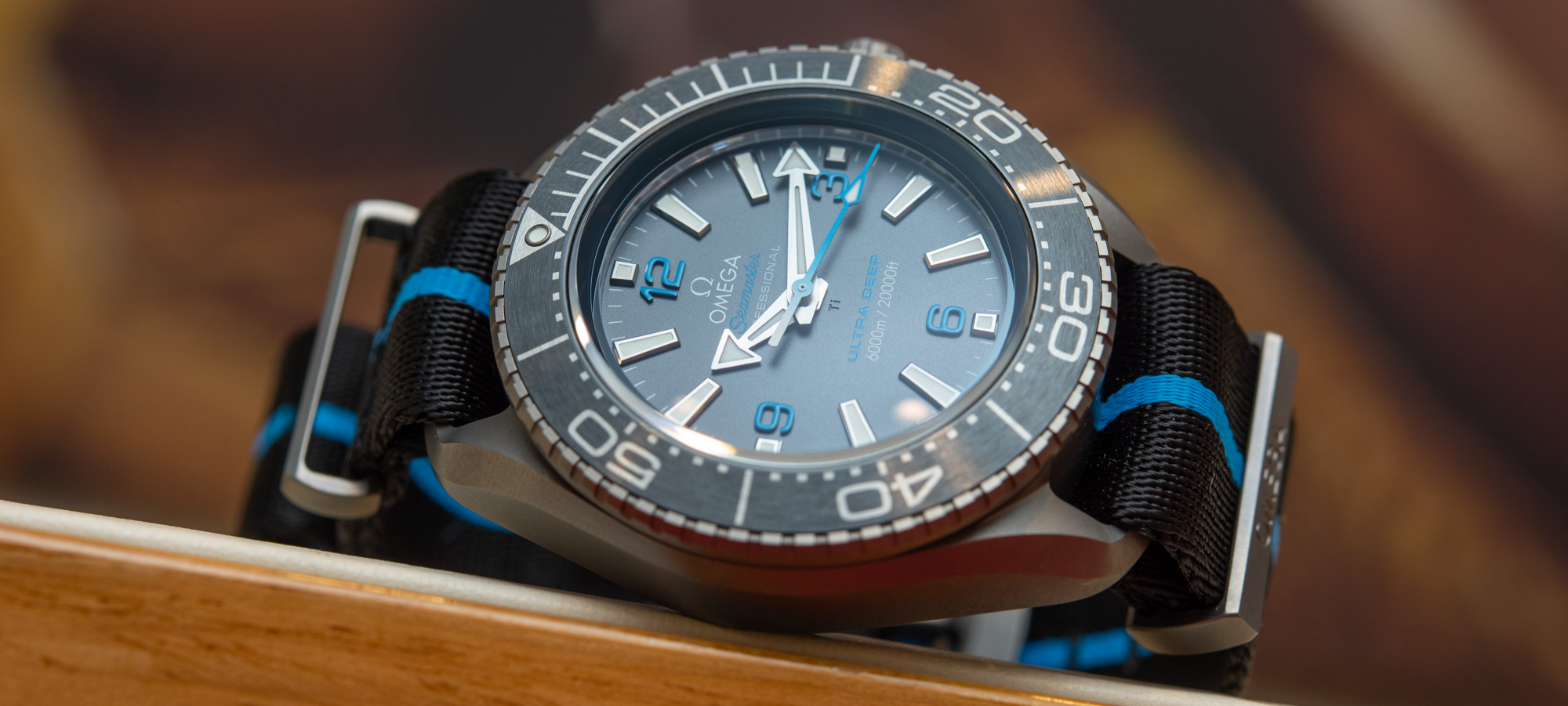
It could be argued that there are few things more paradoxical in commercial horology than extreme dive watches, and the new Omega Seamaster Planet Ocean 6000M Ultra Deep brings us to that conclusion once again. It’s such a finely executed take on the multi-mile diver, disguising its immense capabilities almost too well, that it brings into question the very appeal of such an exercise.

Taking things to the unusable, impossible-to-experience extremes has, for the last few decades, been a permanent desire in watchmaking, and especially in its luxury niche. Finely made mechanical watches that can measure a tenth or even a hundredth of a second — way beyond the human reaction time and, hence, virtually impossible to validate — and dive watches that can withstand pressure so great it would compress the wearer into a jam are the cornerstones of a game of one-upmanship that keeps stealing the limelight from more utilitarian issues, such as chronometry, comfort, and after-sales care. What makes the new Seamaster Ultra Deep stand out is that it is one of the most comfortable and least conspicuous four-mile divers ever made.
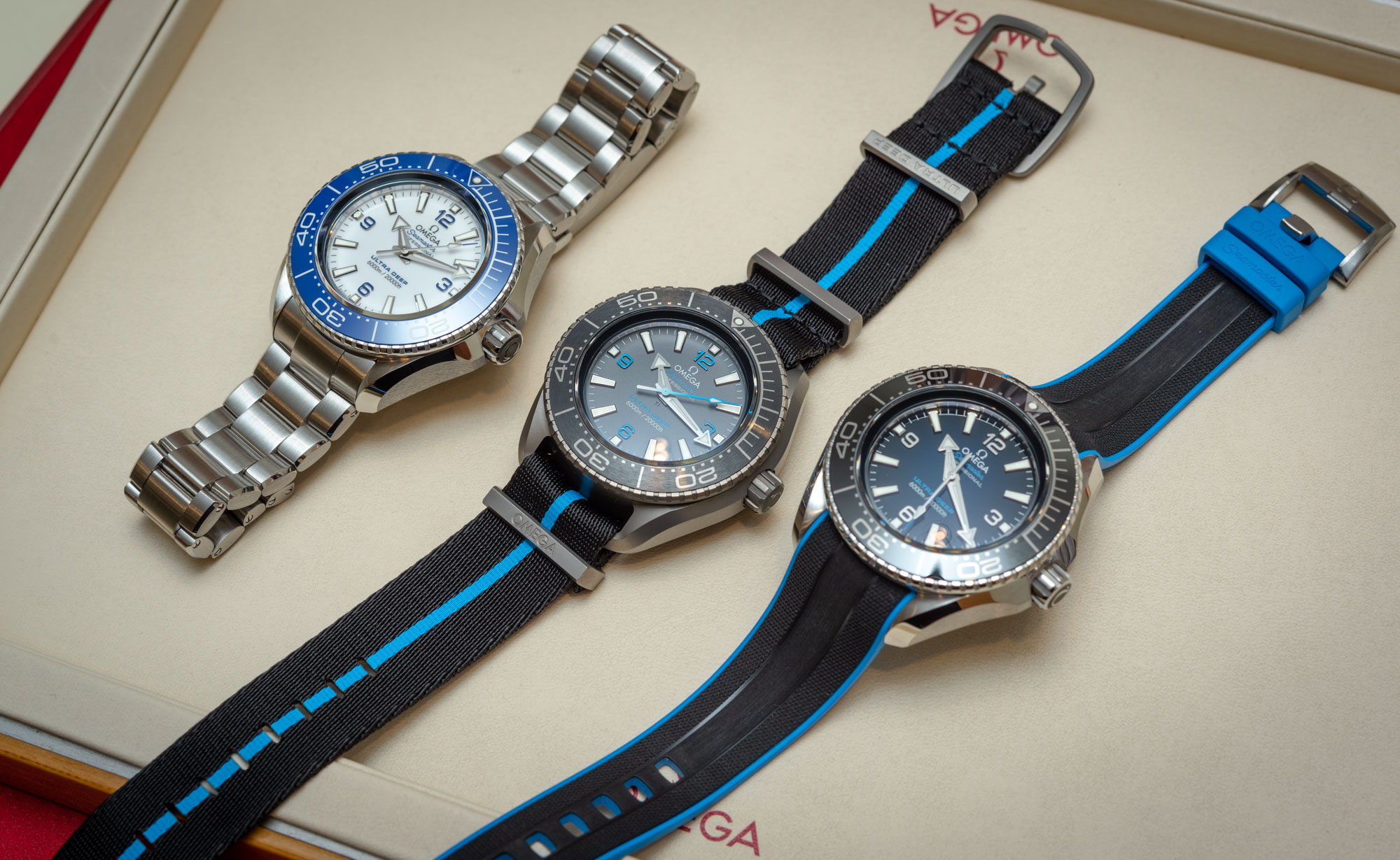
Where’s the controversy in that? Contrary to some other Omega dive watches, like the old-school brute Ploprof that I reviewed back in 2016, the Seamaster Ultra Deep does not make a fuss about being a 6,000-meter diver. It takes but a glance to see a diver that is, yes, arguably bloated in its proportions, but does not even have a helium escape valve — neither a discreet valve flush with the case nor the regular Seamaster 300M’s look-at-me screw-down affair. Let us get to know the Seamaster Ultra Deep collection better and return to this issue at the end.
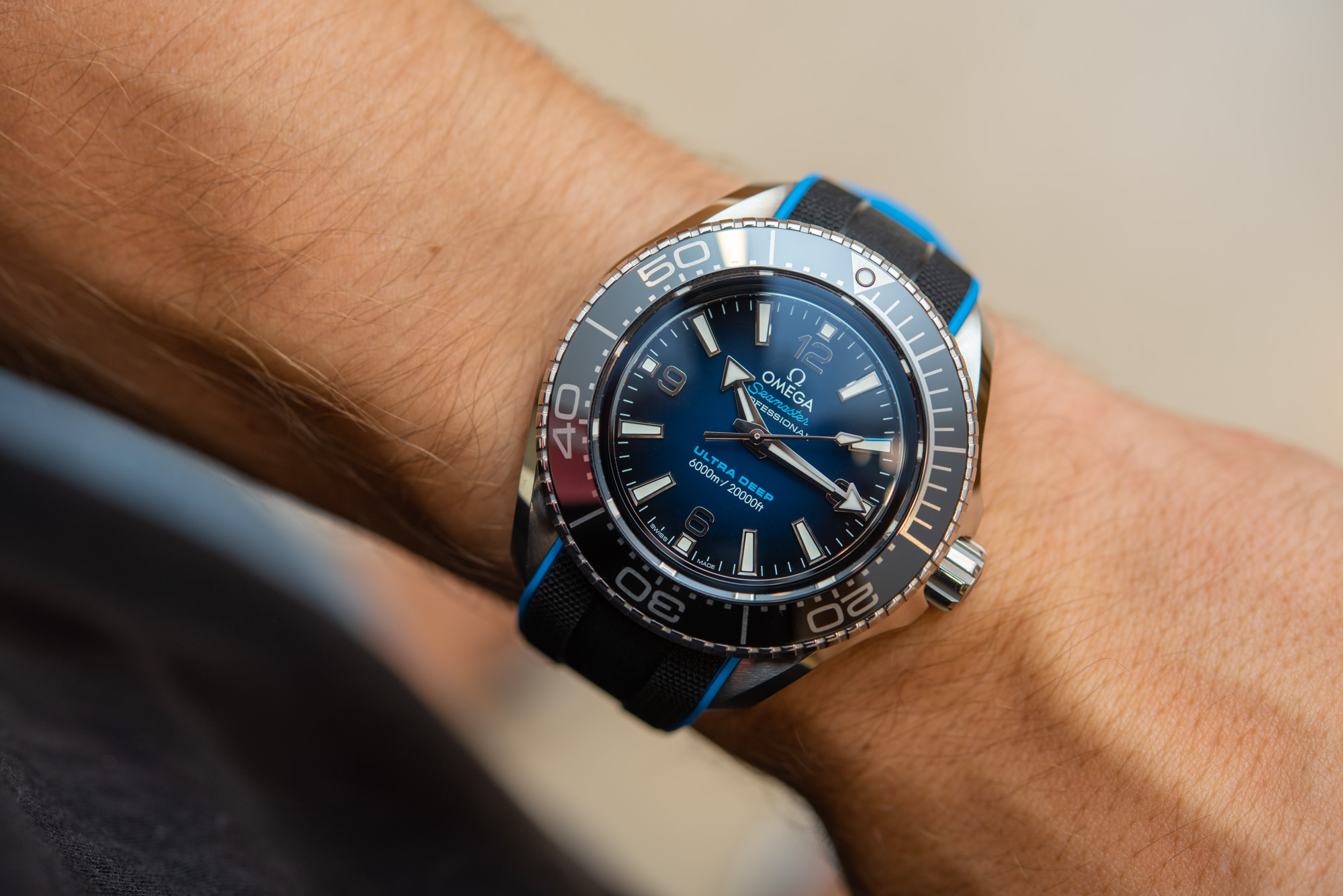
Crafted from the rather oddly named O-MEGASTEEL (in all caps) or titanium, the Omega Seamaster Planet Ocean 6000M Ultra Deep measures a large, but by no means extraordinary, 45.5mm in diameter. It is 18.2mm-thick, and it weighs 170 grams, but the wobble-free fit courtesy of the vast, flat caseback and the precisely integrated rubber strap eliminates the difference between this and a regular 45.5mm diver — or, say, a 47mm Panerai. It even looks almost OK on my narrow 6.75″ wrist.

The flat caseback that so neatly lines up against the wrist features a grade 5 titanium medallion with a laser-engraved Sonar emblem and the Omega Seahorse at its center. Underneath it lives the Omega Co-Axial Master Chronometer Calibre 8912, a COSC-certified movement found in some other Omega dive watches with 60 hours of power reserve, capable of resisting magnetic fields reaching 15,000 gauss. Its two series-mounted barrels are rewound by a self-winding system that works in both directions of the rotor’s movement.
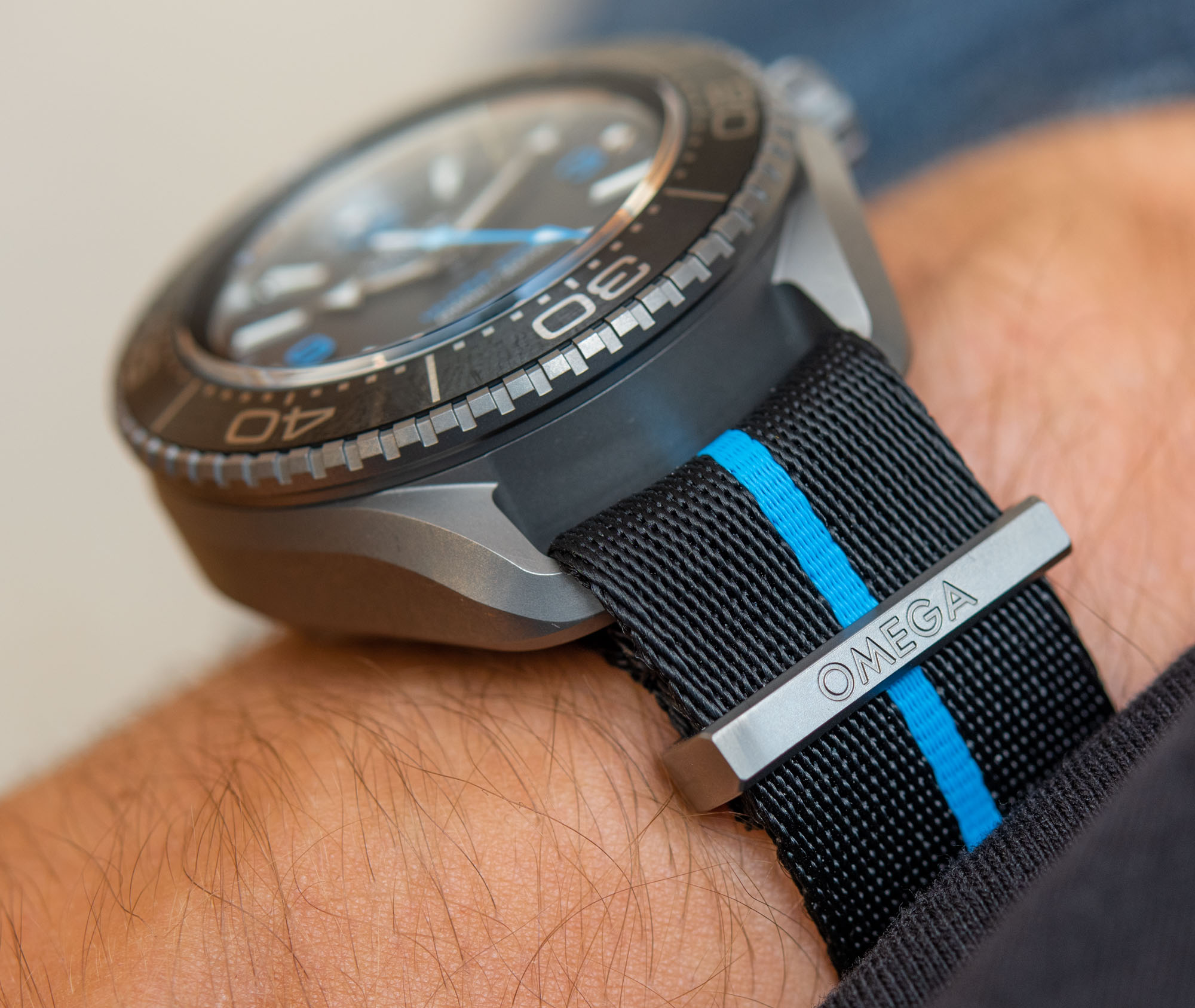
Look and feel are more compromised on the NATO strap (as Omega calls it). Note that this version, pictured above, comes with a titanium case that largely reduces weight, but it is also equipped with a monoblock lug structure very similar to the Tudor Pelagos FXD, meaning there are no spring bars and so no regular strap or bracelet can be fitted as they can be on the steel-cased variants of the Omega Seamaster Planet Ocean 6000M Ultra Deep. Weight is down to 123 grams in titanium, but judging from the limited experience of some hands-on time with this collection, there is noticeably more wobble on this NATO strap than on the rubber or steel alternatives. so the lower weight’s enhancement of wearing comfort is, sadly, mitigated.
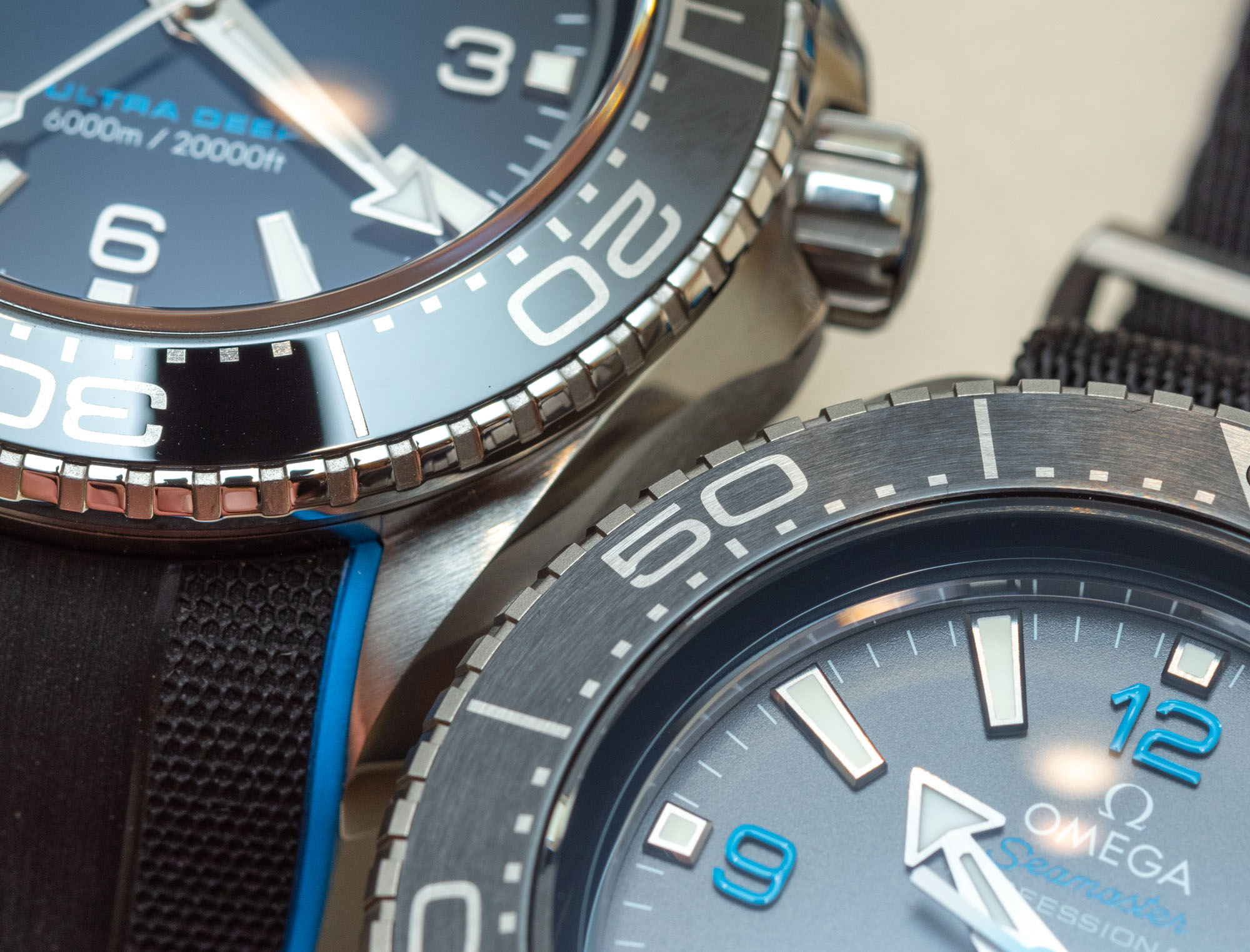
This titanium version (reference 215.92.46.21.01.001) also has a brushed matte bezel and a grained, equally matte dial in contrast to the glossy ceramic bezel and lacquered dial found on the steel versions. The applied hour markers remain and legibility is virtually identical between the two, so picking one over the other will likely be down to one’s personal preference of not just the dial and bezel differences, but between the lug structures, as well.

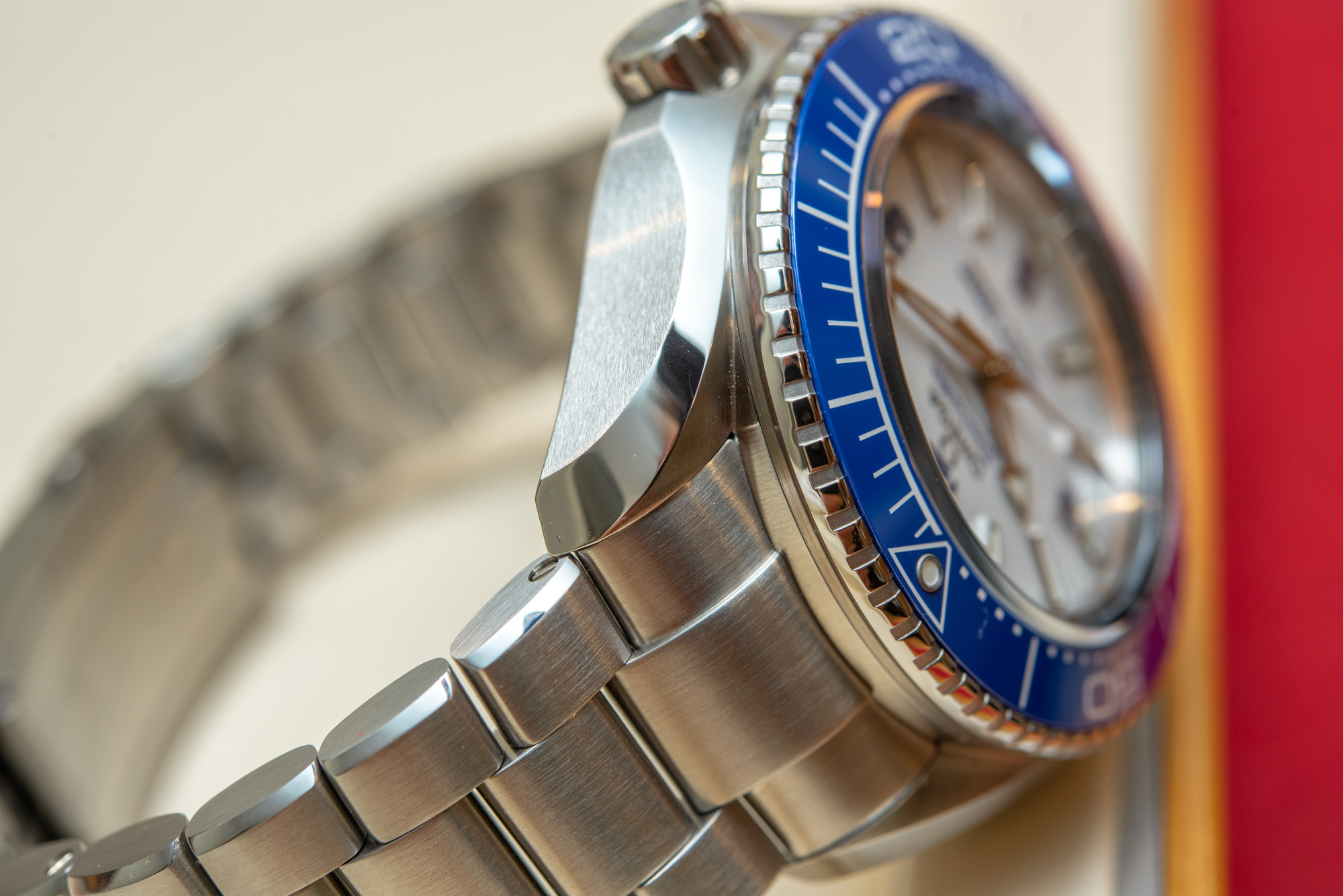
On the beautifully crafted steel bracelet that impresses with the wide, polished edge on its outer links, the Omega Seamaster Planet Ocean 6000M Ultra Deep weighs a whopping 254 grams (a double-quarter-pounder), although that measurement is certainly taken with every chunky link still in place. That said, it is this weapons-grade heft that remains the only tangible hint at the watch’s immense diving capability, and this leads us to the issue at the core of this extreme diver.

Although there are no good or bad answers, just personal preference, we should still entertain the question raised by the Omega Seamaster Planet Ocean 6000M Ultra Deep, which reads: What is the point of a 6,000-meter, 20,000-feet diver if it gives nothing away of its hardly matched capabilities? Taking a Seamaster 300M or a Planet Ocean 600M on a dive and breaking it because its water resistance failed remains but a dream (or nightmare) of desk divers. But if we are to shell out five-figure sums for a 10 or 20 times more capable diver, don’t we want to be reminded of all that in ways other than immense weight and a line of text on the dial?
This, after all, is what’s given the Ploprof its charm: If you went all out on dive watches, here you received a package that appeared and interacted in unique ways, unfailingly reminding you of your choice to get one of the most immensely capable dive watches ever made. The Omega Seamaster Planet Ocean 6000M Ultra Deep is a hugely impressive feat in that it goes deeper than 99% of its competition while maintaining a form factor and wearing experience, on some of its strap options at least, comparable to said 99%. But what’s the point of spending all that extra cash and carrying all that extra weight?
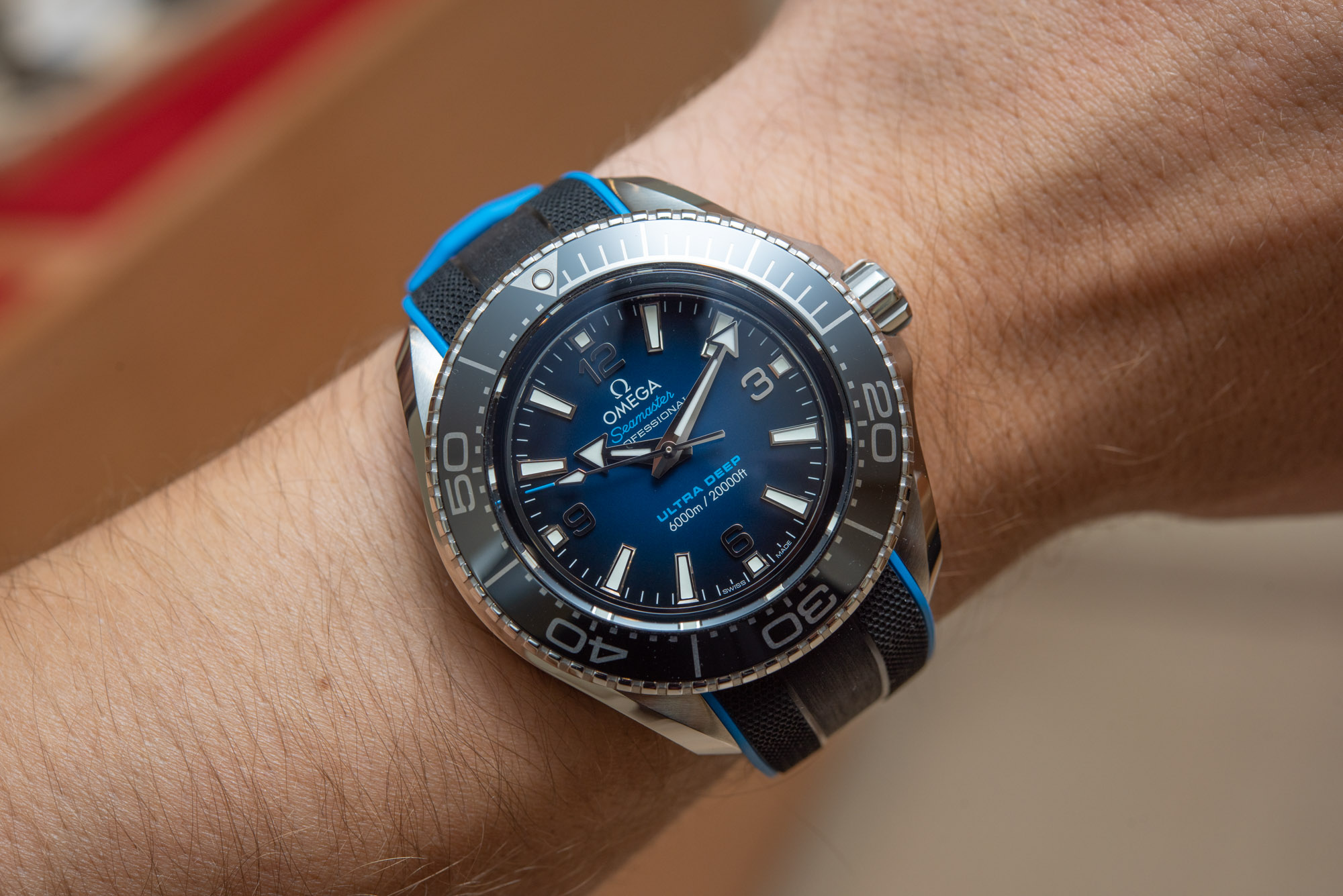
The Ploprof is at one extreme when it comes to communicating one’s affection for purpose-built, go-anywhere dive watches — but the Seamaster Ultra Deep is arguably at the other. It is not without its purpose, though, as the Seamaster Ultra Deep is destined to function more as a tool to convey Omega’s legitimacy than as a tool to aid saturation divers, effectively helping to sell more Seamaster 300M’s by communicating Omega’s expertise in the field of dive watches. And that is, of course, all good.

Better still, if all you ever wanted was an Omega dive watch with even more bragging rights than the Seamaster 300M or Planet Ocean 600M — 20 and 10 times as much, respectively — but did not want to sacrifice much of the wearing comfort of those two established model lines, you are in luck: The Seamaster Ultra Deep is probably what you have been waiting for.
Pricing for the Omega Seamaster Planet Ocean 6000M Ultra Deep collection starts at $11,200 USD for the stainless steel variants on a rubber strap, $11,600 USD on the steel bracelet, and jumps to $12,300 USD for the titanium reference. You can learn more at the brand’s website.

